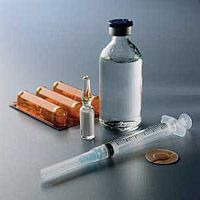Article
Could This Artificial Pancreas More Effectively Manage Type 1 Diabetes Than Current Treatment Options?
Author(s):
Researchers from the University of California-Santa Barbara recently announced they have created an implantable "artificial pancreas" that could potentially eliminate the need for insulin injections and pumps for treating type 1 diabetes.

Researchers from the University of California-Santa Barbara recently announced they have created an implantable “artificial pancreas” that could potentially eliminate the need for insulin injections and pumps for treating type 1 diabetes.
According to study results published in the journal Industrial & Engineering Chemistry Research, Francis Doyle, MD, and colleagues have created a device that uses an algorithm to continuously measure an individual’s blood glucose levels, automatically transferring insulin when necessary.
This could prove to be a significant milestone considering patients currently must either self-inject themselves with the hormone several times a day or perform a continuous hormone infusion through an external insulin pump.
Using computer models to test the device, the team discovered it maintained the ideal blood glucose range of 80-140 mg/dL 78% of the time, “with no time spent in hypoglycemia.”
Touting the device’s potential at a press conference, Doyle said, “The closed-circuit system provides much tighter control at an unprecedented level to minimize complications and to improve the quality of life. It will have immediate benefits, as it will lower health care costs in the country and it will reduce the amount of decisions people with diabetes need to make on a constant basis.”
The team plans to conduct animal testing to evaluate in vivo performance of the device, and is hopeful the artificial pancreas will be available in the next five years for patients with type 1 diabetes.





